Show summary Hide summary
- Navigate wisely: food triggers to avoid to reduce irritable bowel symptoms
- The power of fiber: a fiber-rich diet to soothe irritable bowel syndrome
- Protein and healthy fats for digestive well-being
- Foods rich in antioxidants and probiotics
- Eating habits and stress management
Irritable bowel syndrome (IBS), also known as irritable bowel syndrome, is a common digestive condition that can cause a range of troublesome symptoms, including abdominal pain, bloating, diarrhea or constipation.
If you suffer from irritable bowel syndrome, you know how essential managing your diet is to minimizing these symptoms.
Living in harmony with a sensitive gut can seem like a daunting challenge, but with the right dietary approach and adapted lifestyle habits, it’s possible to significantly reduce the impact of irritable bowel on your daily life.
In this article, we’ll explore in detail the food choices and strategies that will help you soothe your digestive system, minimize irritable bowel symptoms and regain intestinal well-being.
You’ll discover the main food triggers to avoid, the benefits of a high-fiber diet, recommended healthy proteins and fats to support digestion, as well as specific foods rich in antioxidants and probiotics that can help soothe irritable bowel symptoms.
In addition, we’ll look at eating habits and stress management strategies that play a vital role in maintaining a healthy gut.
Get ready to explore a world of food choices tailored to your condition, because it’s time to get in tune with your sensitive gut and regain control over your digestive health.
Navigate wisely: food triggers to avoid to reduce irritable bowel symptoms
The path to a soothed irritable bowel begins with a thorough understanding of the foods that can trigger uncomfortable symptoms.
If you suffer from irritable bowel, you know how crucial a role diet plays in managing your intestinal well-being.
In this section, we’ll look at the main food triggers to avoid to minimize IBS symptom episodes and discuss tips for managing attacks, as well as gradually reintroducing fiber.
Foods to avoid:
- Non-soluble fibers: During an irritable bowel crisis, it’s essential to avoid non-soluble fibers, found notably in cruciferous vegetables such as cauliflower, broccoli and cabbage. These fibers can be difficult to digest and aggravate IBS symptoms. Instead, opt for steamed vegetables and eliminate raw vegetables.
- Carbonated beverages: Carbonated beverages, rich in carbon dioxide, can cause abdominal distension and worsen bloating. Opt for plain water or soothing herbal teas.
- Sugars and FODMAPs: FODMAPs (Fermentable Oligosaccharides, Disaccharides, Monosaccharides, and Polyols) are a group of fermentable carbohydrates that can cause problems for irritable bowel sufferers. Avoid foods rich in FODMAPs, such as legumes (lentils, peas, beans, soybeans), garlic, onions and lactose-rich dairy products .
- Corn: is difficult to digest due to its high cellulose content, which the human body cannot break down due to a lack of suitable digestive enzymes. This can lead to gas and cramps, and corn kernels may come out unchanged, as cellulose is resistant to intestinal fermentation.
- Histamine-releasing foods, which include citrus fruits, certain cheeses, fermented products and alcoholic beverages, can trigger or worsen IBS symptoms by promoting the release of histamine in the body. This substance, involved in allergic and inflammatory reactions, can contribute to intestinal discomfort, bloating, and increased gastrointestinal sensitivity.
Beneficial foods in times of crisis
When you’re going through an irritable bowel crisis , it’s all the more essential to make the right food choices to soothe your digestive system.
Here are categories of beneficial foods to incorporate into your daily routine in times of crisis, grouped by type:
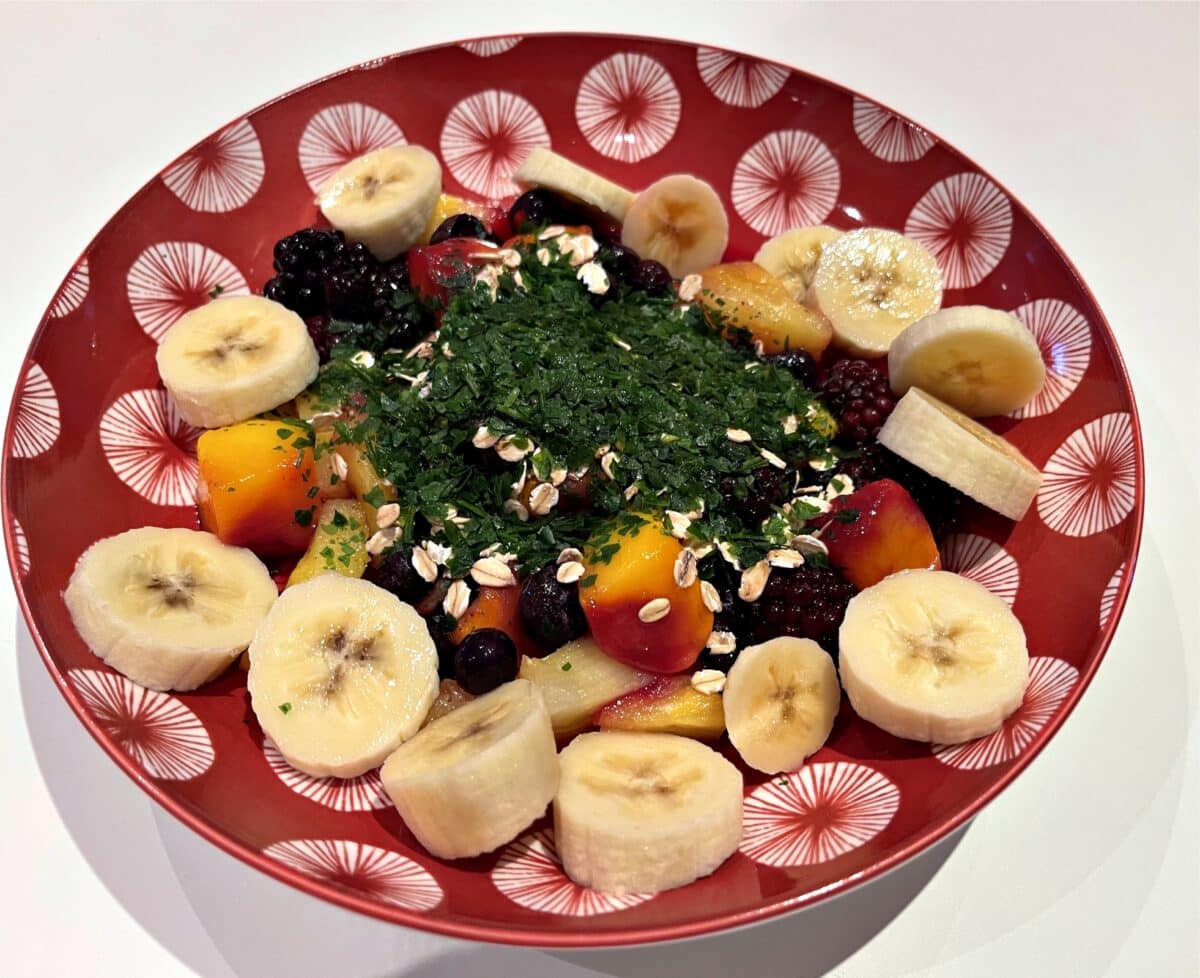
Gluten-free accompaniments:
- Buckwheat: buckwheat is an excellent source of soluble fiber and a gluten-free alternative to traditional cereals. It is gentle on the intestines and can be used to prepare tasty dishes. In terms of format, buckwheat-based soba noodles are also available.
- Red rice: red rice offers multiple health benefits. Firstly, its high fiber content helps reduce the risk of diabetes, cardiovascular disease and obesity. Red grains are rich in antioxidants, which delay skin aging. This variety of rice is also a source of vitamin B6 and minerals, and is known to lower cholesterol levels. Red rice is a whole grain rich in fiber, which promotes better digestion. What’s more, its strong pigmentation gives it remarkable antioxidant properties, helping to combat skin ageing. It is easily digestible and has a relatively low glycemic index, helping to regulate blood sugar levels and prevent cardiovascular accidents. Red rice is highly appreciated by athletes for its properties as a whole grain, helping to avoid hypoglycemia and regulate intestinal transit. Its low sodium content also makes it a suitable choice for various salt-free diets.
- Quinoa: quinoa is rich in protein and fiber, making it an excellent choice for soothing your digestive system while providing essential nutrients. But be careful! Although quinoa is gluten-free, it does contain proteins called prolamins which, according to some scientific studies, can trigger an immune reaction similar to that caused by gluten. So it’s crucial to pay attention to the signals your body is sending out.
Easily tolerated vegetables:
- Sweet potatoes: sweet potatoes are gentle on the stomach and rich in vitamins and minerals, particularly vitamin A and potassium.
- Squash (pumpkin, kabocha), eggplant and zucchini: rich in fiber and antioxidants, they are also easy on the digestive system.
- Cooked red or yellow peppers: cooked peppers are gentler on the stomach than raw, while providing vitamin C and antioxidants.
- Carrots: carrots are a source of soluble fiber and essential vitamins, particularly vitamin A.
Sweet fruit:
- Blueberries, blackcurrants, raspberries and strawberries: these berry fruits are rich in antioxidants and soluble fiber, while being generally well tolerated. Avoid cherries, or at least no more than 3 a day;
- Bananas: bananas are gentle on the stomach and provide an easily digestible source of energy;
- Mangoes: daily consumption of mangoes, rich in fiber and polyphenols, was studied in a group of 300 people with ulcerative colitis or Crohn’s disease for eight weeks. Results showed a reduction in symptoms of ulcerative colitis, a decrease in inflammation markers in the blood, a significant drop in an endotoxin specific to intestinal inflammation, and a notable increase in lactobacillus bacteria beneficial to intestinal health. This study suggests that adding mangoes to the diet could have beneficial effects on people with inflammatory bowel disease.
- Citrus fruits: with pulp but without fiber. Chew and then spit out the large fibers.
Leafy green vegetables:
- Salad and lamb’s lettuce: these leafy green vegetables are generally gentle on digestion and rich in nutrients. Give preference to young shoots and leaves, which can be irritating to the intestines.
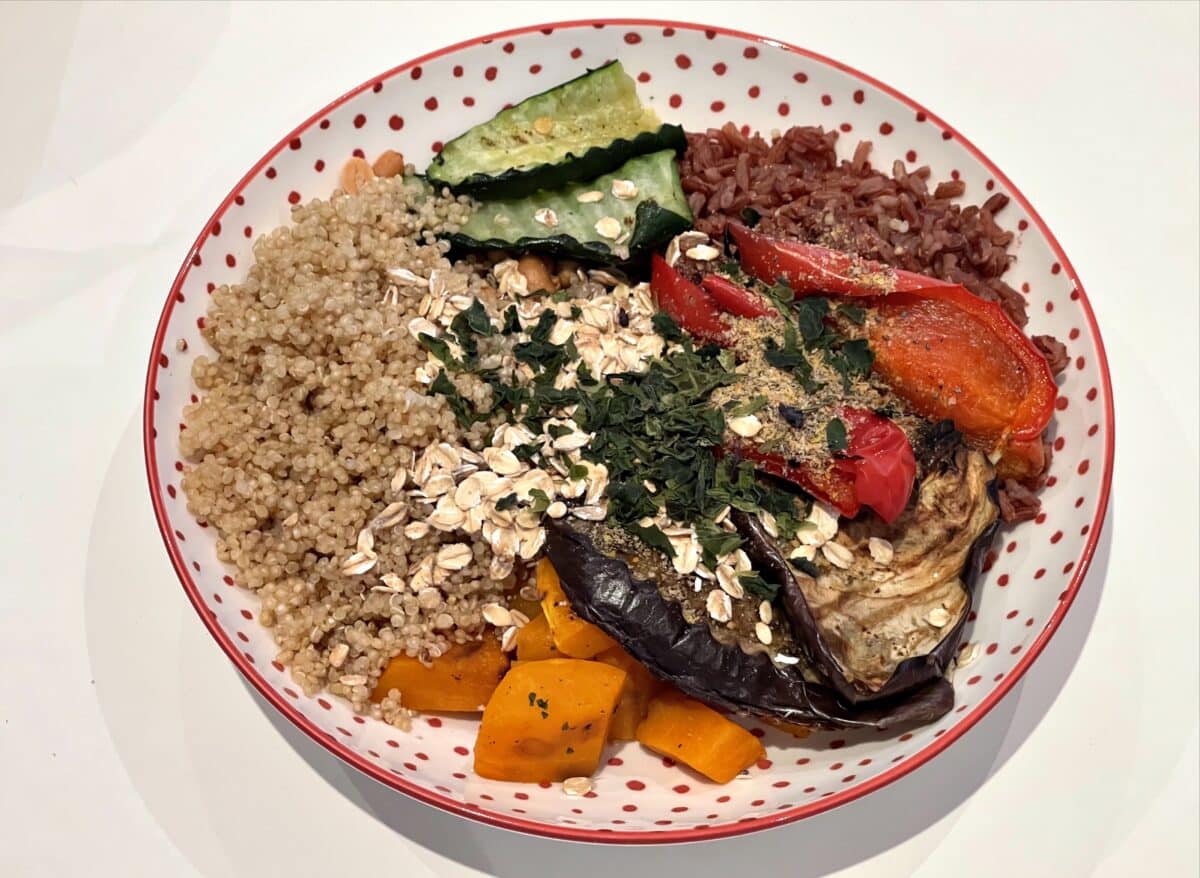
Starch options :
- Potato, yam and taro: these root vegetables offer a gluten-free starchy option for your diet.
Organic eggs:
Hard-boiled, soft-boiled or poached. Avoid fried eggs because of the fat required for cooking.
Fatty and lean fish :
- Oily fish (mackerel, salmon, trout): Oily fish are rich in omega-3 fatty acids, which have anti-inflammatory properties and can help soothe colon inflammation.
- Lean fish (e.g. hake): Lean fish provide lean protein and are easy to digest. They also contain fewer heavy metals than fatty fish.
Meat and poultry:
Grilled lean meats, grilled or roasted poultry, grilled liver, cooked ham. Choose organic and antibiotic-free meats.
Yogurts and dairy products:
Yogurts made from coconut milk, but especially soy-free in times of crisis.
Vegetable milks made from:
- coconut ;
- almonds ;
- hazelnuts.
Alternatives to bread :
- Homemade sourdough bread: Sourdough bread can be more easily tolerated than commercial breads, especially if prepared with prolonged fermentation.
- Crunchy buckwheat toast (le pain des fleurs brand): This gluten-free buckwheat-based option can be a light alternative for your bread cravings.
Flours for culinary creations :
- Sorghum, millet, rice, quinoa, buckwheat: These gluten-free flours can be used to create a variety of dishes, including pastries and main courses, while avoiding potentially colon-irritating gluten.
Oilseeds:
- Hazelnuts, brazil nuts, macadamia: unroasted, unsalted, skinless and bought in bags , not in bulk.
Brazil nuts are particularly rich in selenium, an essential trace element that plays a vital role in the human body. As an antioxidant, it protects cells from free-radical damage, boosts the immune system, promotes thyroid health by helping to convert thyroid hormones, and is associated with a reduced risk of cardiovascular disease, certain cancers and neurological disorders. However, excessive selenium consumption can be detrimental, so it’s crucial to maintain a proper balance in the diet to reap its benefits without the risk of toxicity.2-3 brazil nuts a day are sufficient as part of a balanced diet.
Seaweed:
Dried in flakes, easy to introduce into the daily diet and rich in iodine. Ao Nori or Sea Lettuce seaweed. Quality products on the Algo Manne website.

Seeds:
A blend of chia and golden flax seeds to be ground in a blender before consumption. Available in organic stores. 1 teaspoon sprinkled on a salad.
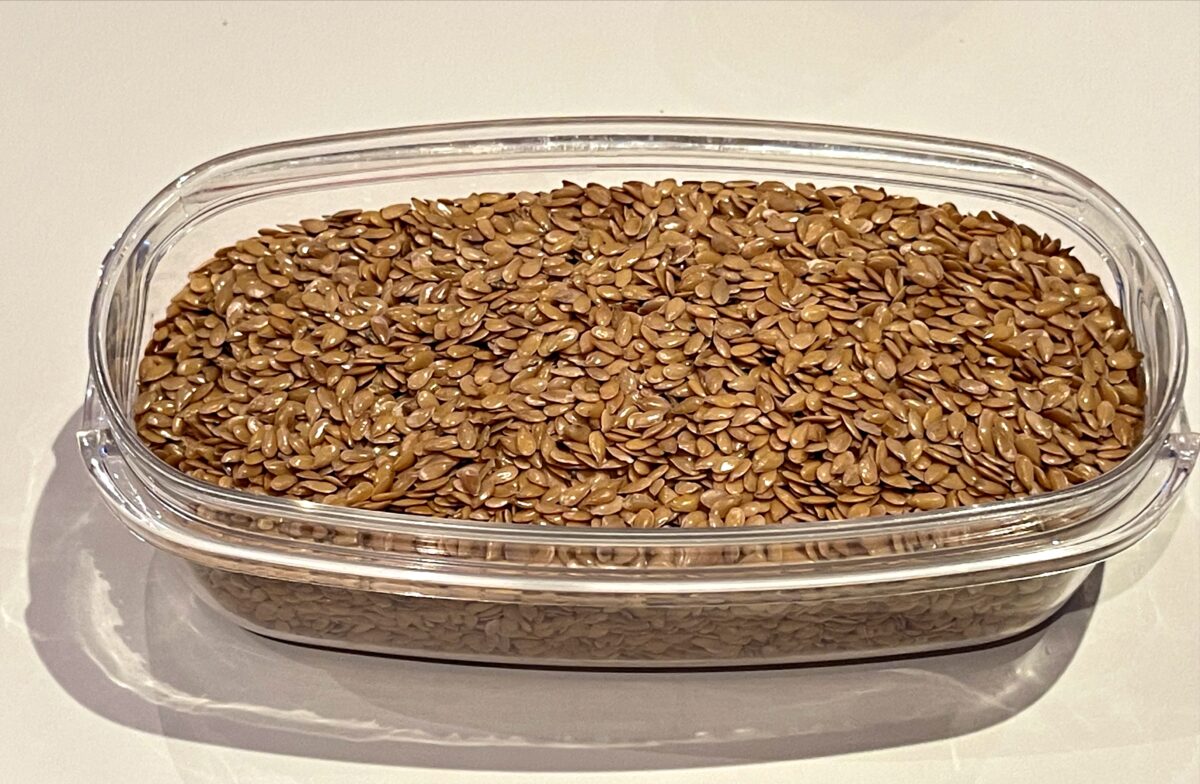
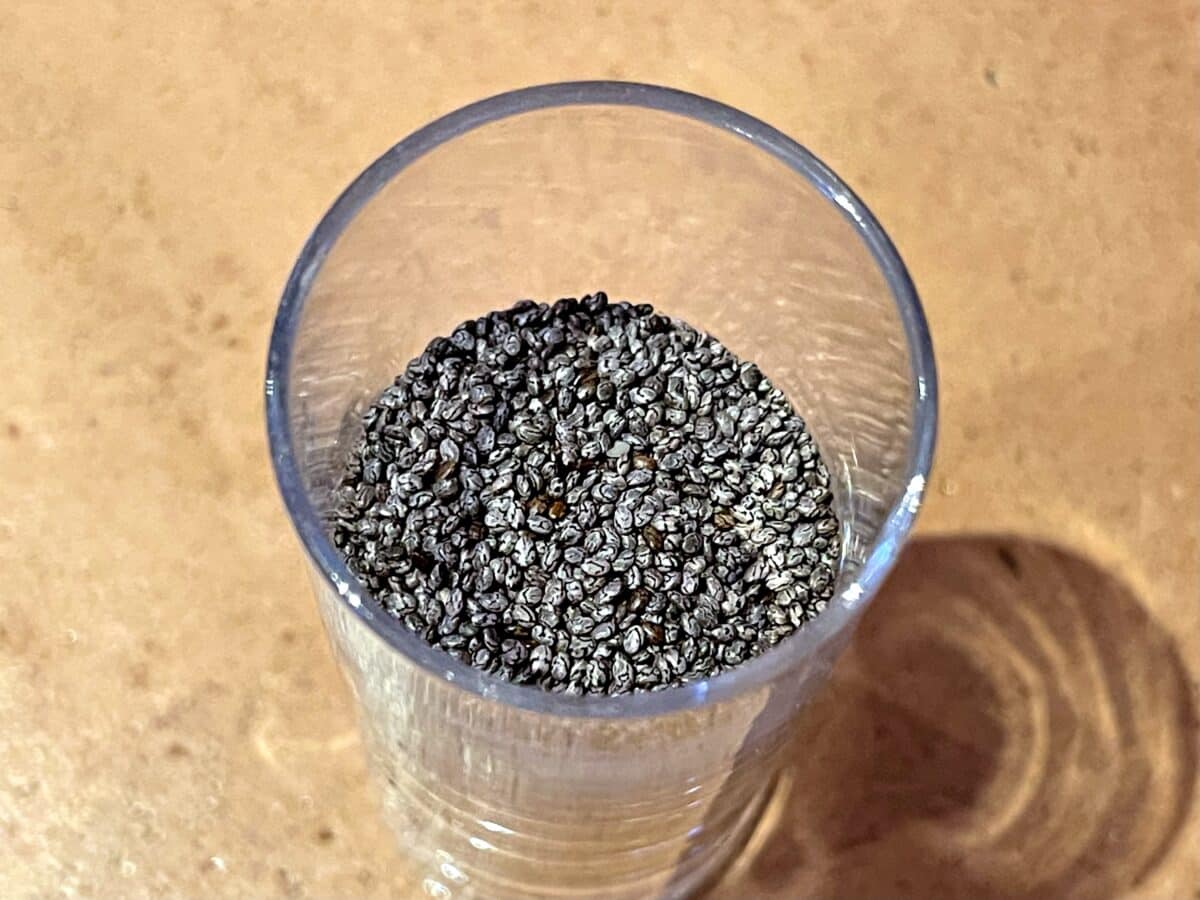
Spices and aromatics:
Curry, saffron, ginger, turmeric, sorrel, parsley, basil, coriander,…
Morning drink:
Decaffeinated coffee, herbal tea, chicory no more than 20g/day (no Ricoré as this product contains caffeine)… No apple juice, orange juice or other fruit juices, as they are too high in sugar.
Tea should be avoided as it prevents the absorption of dietary iron. Consume with vitamin C or at mealtimes.
Cheese:
- Old mimolette.

Hydration:
- Water and herbal tea: 2.5L/day, 20-30 minutes before meals or 2h00 after.
By incorporating these gentle, nutritious foods into your diet in times of crisis, you can help soothe irritable bowel symptoms while continuing to enjoy a variety of flavors and textures. Remember to consult a healthcare professional or nutritionist for personalized advice based on your individual needs.
Tips for crisis management :
- Temporary elimination: In the event of an acute attack, it may be necessary to temporarily eliminate potentially irritating foods from your diet. This may allow your intestine to rest and recover.
- Gradual reintroduction: Once the crisis is over, consider gradually reintroducing insoluble fiber into your diet. Carefully monitor your reaction to each reintroduced food.
- Gentle cooking: Prefer gentle cooking, such as steaming, when preparing your meals. Avoid deep-frying or excessively fatty cooking, which can aggravate symptoms.
- Eat in peace: Try to relax before sitting down to eat. Anxiety can interfere with digestion, so take time to calm down before eating. Chew each bite slowly and consciously.
In this first section, we looked at foods to avoid to minimize irritable bowel symptoms and discussed crisis management strategies, including gradually reintroducing fiber into your diet.
The power of fiber: a fiber-rich diet to soothe irritable bowel syndrome
Often overlooked, dietary fiber is actually one of the major assets in soothing irritable bowel symptoms.
In this section, we’ll explore the many benefits of fiber for irritable bowel sufferers, highlighting improved intestinal motility.
In addition, we’ll introduce you to recommended sources of fiber, with a special focus onsprouted oats, an exceptional nutritious option for your diet.
The benefits of fiber for people with irritable bowel :
- Improved intestinal motility: Fiber plays a crucial role in regulating intestinal motility. It helps prevent constipation by softening stools, and reduces diarrhea by absorbing excess water. For irritable bowel sufferers, this regulation is particularly beneficial in avoiding frequent fluctuations in intestinal function.
- Satiety: Fiber-rich foods tend to provide a longer-lasting feeling of satiety. This can be beneficial in avoiding cravings and overeating, which can worsen irritable bowel symptoms.
- Stimulating the growth of beneficial bacteria: Fiber is an excellent substrate for the beneficial bacteria present in your gut, promoting a healthy intestinal microbiome. A proper balance of gut bacteria can help regulate inflammation and reduce IBS symptoms.
Recommended fiber sources – Sprouted oats: a must
Among the many sources of fiber, sprouted oats stand out for their unique benefits.
Sprouted oats are particularly suitable for irritable bowel sufferers for several reasons:
- Gluten-free: unlike ordinary oats, sprouted oats are gluten-free. This absence of gluten is crucial for those with gluten sensitivity, which can manifest as symptoms similar to those of irritable bowel.
- Rich in minerals: sprouted oats are rich in essential minerals, including phosphorus, manganese, magnesium and iron. These minerals contribute to the body’s overall health and can compensate for any deficiencies caused by dietary restrictions.
- Promotes gentle digestion: sprouted oats are easy to digest and can help soothe the intestinal tract.
- It can help minimize episodes of abdominal pain and bloating.
However, some people may experience digestive discomfort. Care should be taken to adapt quantities to individual intestinal sensitivity. Large quantities can significantly accelerate transit.
Sprouted oats: reduce phytin for better nutrient absorption
Sprouted oats have a nutritional advantage over unsprouted oats in reducing phytin, an anti-nutritional compound found in many seeds, including cereals.
Phytin can interfere with the absorption of minerals such as iron, zinc, calcium and magnesium in the intestinal tract.
When flakes germinate, they undergo an enzymatic transformation process that reduces phytin content.
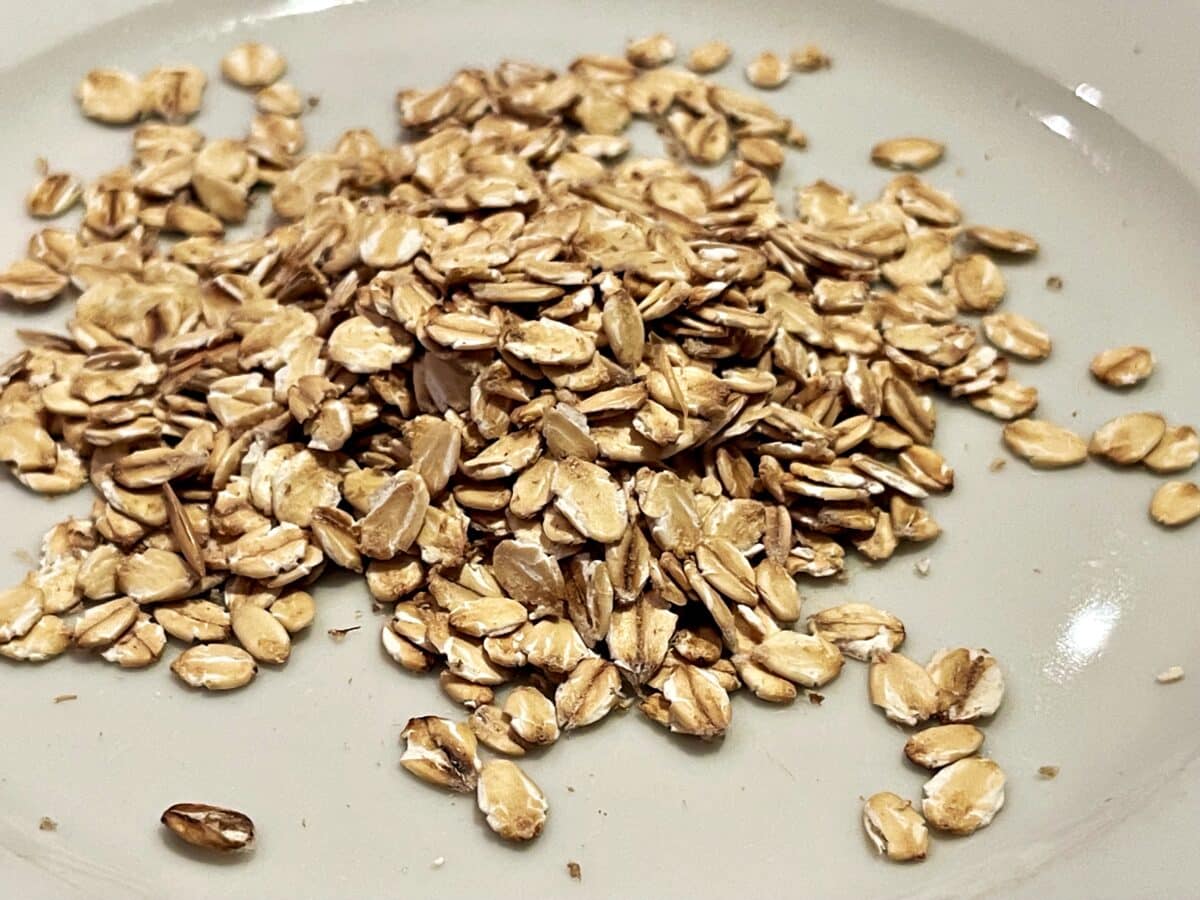
This means that the minerals present in sprouted flakes are more easily absorbed by the body .
As a result, eating sprouted oat flakes can contribute to better utilization of essential nutrients and increased mineral absorption, which can be beneficial for intestinal and overall health.
You can also grind the flakes to obtain flour for making breads and buns.
Psyllium, an essential soluble fiber for irritable bowels
Also known as ispaghul or Indian plantain,psyllium is another beneficial source of fiber for irritable bowel sufferers.
It comes from the seeds of the Plantago ovata plant and is rich in soluble fiber, particularly mucilage.
Psyllium has the ability to absorb large quantities of water, forming a viscous gel in the gastrointestinal tract.
The benefits of psyllium lie in its ability to help regulate intestinal transit. By absorbing water, it can help soften stools, which is particularly useful for people suffering from constipation associated with irritable bowel syndrome.
In addition, psyllium acts as a prebiotic, nourishing the good bacteria in the gut, which can promote a healthy balance of intestinal flora.
The addition of psyllium to the diet should be gradual, as a sudden introduction of fiber can worsen irritable bowel symptoms in some people. It is important to drink plenty of water when taking psyllium to avoid any risk of constipation.
Psyllium use should be monitored to avoid aggravating gastrointestinal symptoms.
For a healthy adult, 1 teaspoon a day can safely improve transit.
This product is readily available in organic stores.
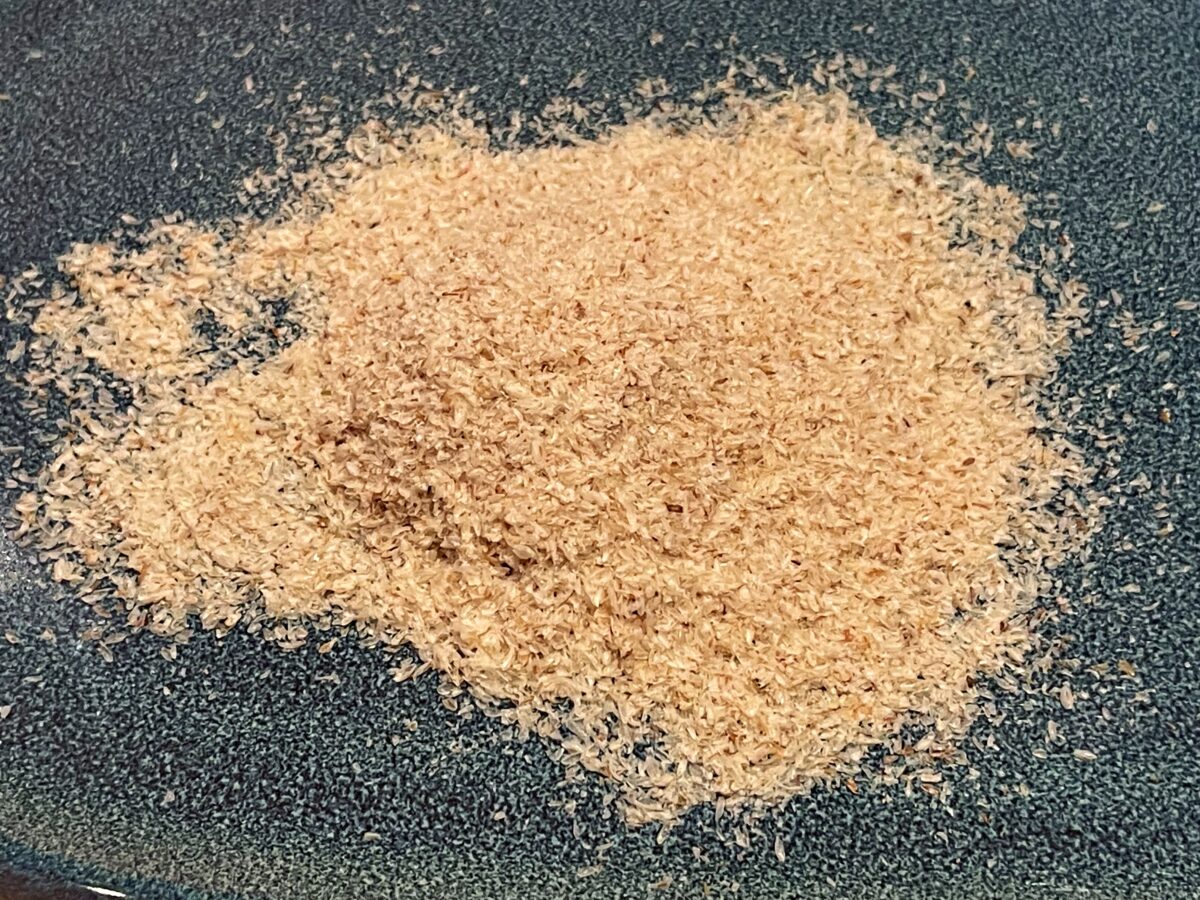
Psyllium has a very viscous texture, so we recommend taking the powder directly into the mouth , followed by a large glass of water.
What’s more, once ground, it can be added to cakes or breads to improve their softness and texture.
Psyllium and medications
It’s important to note that psyllium can interact with certain medications.
Because of its ability to absorb water and form a gel, psyllium can influence the absorption of oral medications.
It is recommended to take psyllium at least two hours before or after taking medication to avoid any potential interference.
In addition, psyllium can help regulate blood sugar levels by slowing the absorption of carbohydrates. Therefore, diabetics taking medication to lower blood sugar levels should closely monitor their blood sugar levels and consult their healthcare professional to adjust their treatment if necessary.
The controversial belief about drinking water with meals
The persistent belief that drinking water with meals can disrupt digestion has been ingrained in many cultures for generations.
Some people believe that drinking water dilutes digestive secretions, making digestion less efficient.
In reality, the body is well designed and the digestive system adapts according to what we ingest.
Some people think that drinking water dilutes digestive secretions, so digestion is less efficient. In reality, the body is well designed and the digestive system adapts according to what we ingest Olivier Spatzierer, gastroenterologist
However, this popular idea has been refuted by many digestive health experts. According to them, water during meals does not significantly affect the digestion process. On the contrary, it may even facilitate the transit of food through the digestive system.
There is, however, one instance in which drinking water with food has a negative effect: when it comes to dessert.
Drinking water with meals encourages the body to absorb glucose, leading to a greater insulin spike. Study published in Clinical Nutrition ESPEN
If you eat very sweet foods, it ‘s best to wait until 30 minutes after eating to drink, suggest the authors of the study.
While water is not inadvisable during a meal, certain beverages can disrupt digestion.
Carbonated drinks (soda, lemonade…), for example, tend to cause bloating by bringing gas into the stomach.
Protein and healthy fats for digestive well-being
In this section, we’ll explore fat recommendations for irritable bowel sufferers.
A balanced diet rich in protein and healthy fats can play a crucial role in managing IBS symptoms.
We’ll discuss recommended proteins for people with irritable bowel, while highlighting plant-based options such as coconut oil, rapeseed oil and ghee.
Healthy fats
Healthy fats play a crucial role in digestive health, helping to regulate inflammation and lubricate the intestinal tract.
Plant-based options are particularly interesting for people with irritable bowel. Here are a few healthy fats to choose from:
- Coconut oil: coconut oil is rich in lauric acid, which has anti-inflammatory, antimicrobial and antifungal properties. It can be used sparingly in cooking.
- Rapeseed oil: Rapeseed oil is an excellent source of omega-3 and omega-6 fatty acids, which have anti-inflammatory effects and can promote smoother digestion.
- Ghee: ghee, a form of clarified butter, is lactose- and casein-free, making it more digestible for many people. It can be used as an alternative to traditional butter.
By focusing on well-tolerated proteins and healthy plant-based fats, you can help soothe your digestive system while maintaining a balanced, delicious diet.
Foods rich in antioxidants and probiotics
In this section, we’ll explore specific foods rich in antioxidants and probiotics that may be particularly beneficial for people with irritable bowel.
Antioxidants help reduce inflammation, while probiotics promote a healthy balance of intestinal flora.
We’ll be highlighting options such as sprouting seeds and sprouted oatmeal, which can be excellent choices for your diet.
Antioxidant-rich foods :
- Sprouting seeds: such as alfalfa, mustard and arugula, are antioxidant treasures. They contain a variety of phytochemicals that help neutralize free radicals and reduce inflammation. By incorporating them into your diet, you can help alleviate irritable bowel symptoms.
- Red and purple fruits: Fruits like blueberries, blackcurrants and all red fruits are rich in antioxidants, particularly anthocyanins. These compounds have anti-inflammatory properties and can help soothe your digestive system.
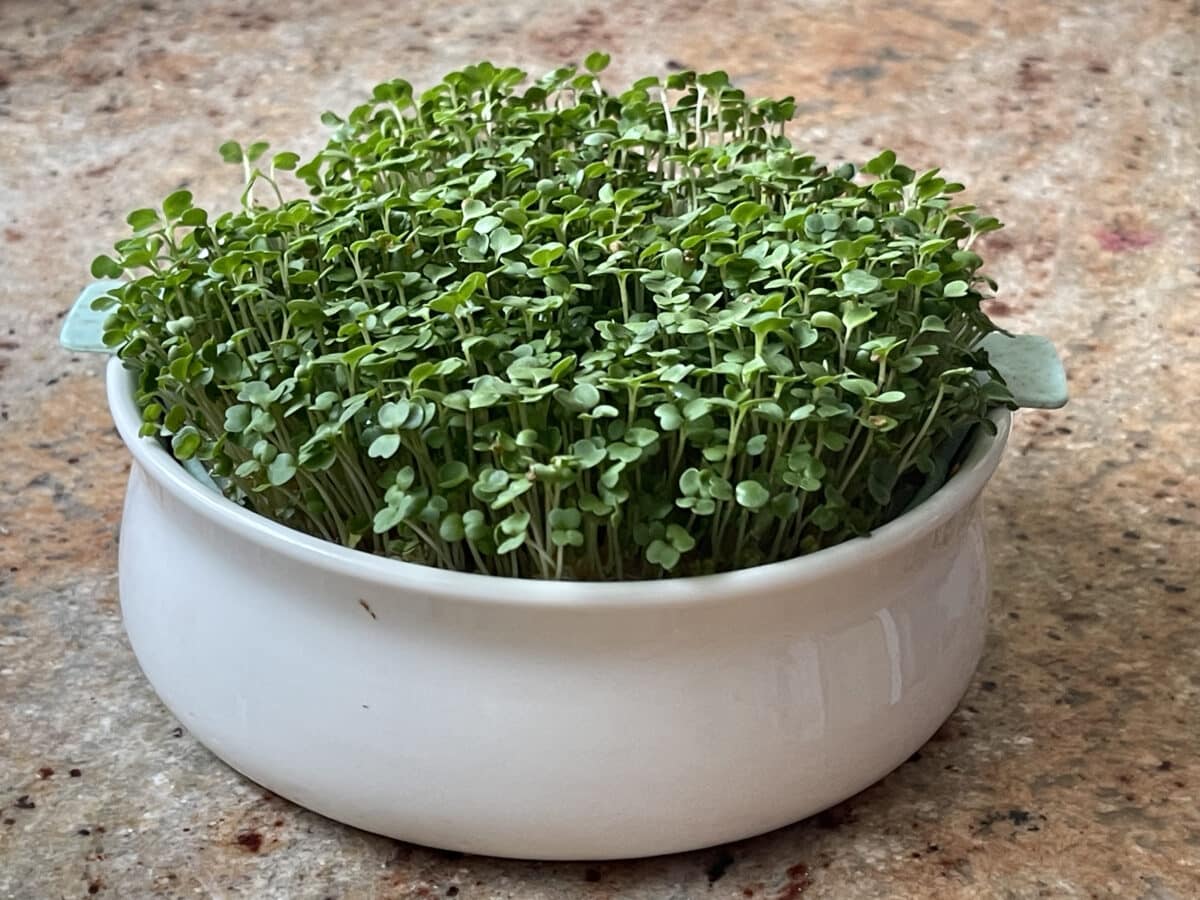
Probiotic-rich foods
- Sprouted oat flakes: Sprouted oat flakes are not only a source of fiber, they also contain natural probiotics. These beneficial micro-organisms promote a healthy balance of intestinal flora and can help regulate digestion. What’s more, as mentioned above, sprouted oatmeal is well tolerated by many people with irritable bowel syndrome.
By incorporating these antioxidant- and probiotic-rich foods into your diet, you can help reduce inflammation, soothe your digestive system and minimize irritable bowel symptoms. Keep reading to discover other essential food tips for optimal management of your irritable bowel.
Eating habits and stress management
In this section, we’ll look at the importance of eating habits and stress management in keeping an irritable bowel in balance.
A healthy lifestyle can go a long way to reducing symptoms and improving quality of life for people with irritable bowel syndrome.
Here are some essential tips:
Tips for maintaining a healthy lifestyle
- Regular physical activity: Regular physical exercise, even in short sessions of 10 to 15 minutes a day, can promote healthy digestion. Diversification of activities is recommended, and yoga at home can be a soothing option. The Yoga | Down Dog app is particularly useful, as it adapts to all levels and needs.
- Improve sleep quality: Quality sleep is crucial to digestive health. Make sure your bedroom is dark, keep away from electronic devices, and avoid screens before bedtime to promote the production of melatonin, the sleep hormone.
- Stress management: Stress can aggravate irritable bowel symptoms. Practice stress management techniques, such as meditation, deep breathing or visualization, to calm your mind. You can try the Jacobson relaxation technique, a progressive relaxation method in which you learn to consciously release muscle tension throughout the body to reduce stress and promote relaxation, or the bodyscan, which allows you to visualize relaxation in each part of the body mentally.
- Adequate hydration: Drink at least 2.5 liters of water a day, avoiding it during meals (20-30 minutes before or 2 hours after). Proper hydration helps the food bolus move through the intestine. Ideally, you should drink 30 minutes before meals and 2 hours afterwards.
- Avoid screens in the bedroom: Avoid electronic screens in the bedroom, as the blue light they emit can disrupt melatonin production and affect your sleep.
- Dine early: Try to eat dinner at least 3 hours before going to bed to allow sufficient time for digestion. The last meal of the day should be lighter in quantity.
- Soft lighting: If you need to go to the bathroom at night, avoid turning on bright lights. Instead, opt for a small red lamp, which won’t disrupt sleep-related hormone production.

By following these tips for maintaining a healthy lifestyle, you can help reduce irritable bowel symptoms and promote a better quality of life.
Harmony between your diet and stress management is essential for peaceful digestion.
In this article, we’ve explored the key elements of an irritable bowel-friendly diet.
We’ve identified food triggers to avoid, the benefits of a high-fiber diet, recommended healthy proteins and fats, foods rich in antioxidants and probiotics, as well as eating habits and stress management to maintain a healthy lifestyle.
It is essential to remember that each individual may react differently to the foods and strategies presented.
It is therefore advisable to consult a health professional, a nutritionist or a dietician recommended by a doctor, to develop a personalized eating plan based on your specific needs.
By following this advice and adapting your diet accordingly, you can live in harmony with an irritable bowel and improve your quality of life.
The aim is to find a balanced diet that soothes your digestive system and allows you to enjoy each day to the full .
Take care of yourself and your well-being, and don’t hesitate to consult experts for personalized support.

